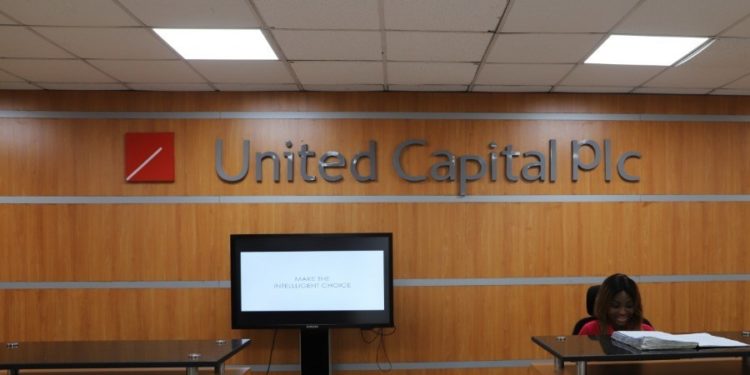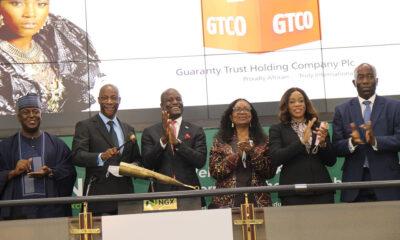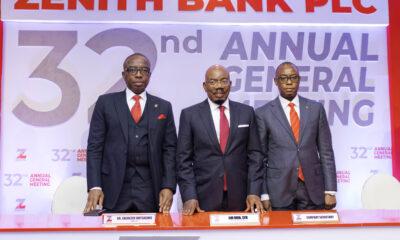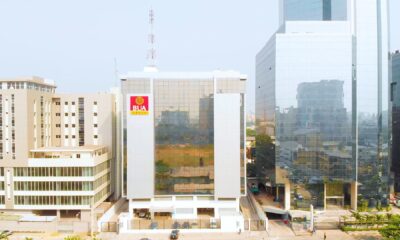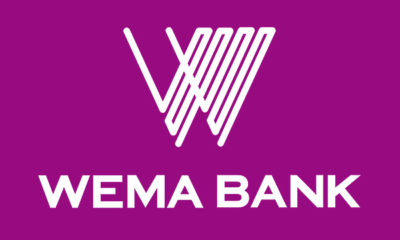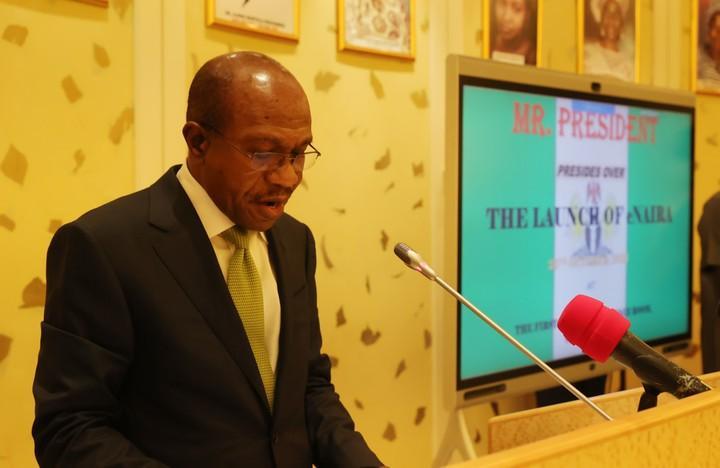United Capital has officially rebounded from COVID-19 negative impact following a strong financial statement report released on Friday, October 15, 2021.
The company grew revenue by 60 percent year on year from N7.07 billion recorded in the first nine months of 2020 to N11.33 billion in the nine months ended September 30, 2021.
Operating income also jumped by 64 percent to N11.08 billion in the period under review, up from N6.76 billion achieved in the corresponding period.
As expected, operating expenses grew with an increase in revenue to N4.24 billion in the nine months under review from N2.95 billion filed in the first nine months of 2020.
Profit before tax stood at N7.09 billion in the first nine months of 2021, representing an increase of 72 percent when compared to N4.12 billion posted in the same period of 2020.
Profit after tax responded positively as it jumped by the same 72 percent year-on-year to N5.97 billion from N3.46 billion recorded in 2020.
Earnings per share also grew by 72 percent year-on-year from 77 kobo in 2020 to 133 kobo in the period under review.
See other United Capital key Financial Highlights
- Total Assets: N400.75 billion, compared to N222.75 billion as at FY 2020 (80% year-to-date growth)
- Total Liabilities: N373.86 billion, compared to N198.32billion as at FY 2020 (89% year-to-date growth)
- Shareholders’ Fund: N26.89 billion, compared to N24.43 billion as at FY 2020 (10% year-to date growth)
Comparing 9M 2021 with 9M 2020, the following are worthy of note:
− Total Revenue: During the period under review, United Capital’s total revenue increased by 60% year-on-year driven largely by growth in fee and commission income (+112% year-on-year) and Investment Income (+43% year-on-year).
− Cost-to-Income ratio: The company continue to maintain improvement in operational efficiency as cost-to-income ratio for the period declined by 10.25 percentage points largely attributable to the impressive growth in revenue (+64% year-on-year) relative to operating expenses (+44%year-on-year).
− PBT Margin: United Capital recorded an improvement in Profitability margin during the period under review as PBT margin increased by 7.32 percentage points to 62.60% in 9M 2021 compared to 58.33% in 9M 2020 as PBT grew by 72% year-on-year during the period under review.
− PAT Margin: PAT margin also increased, gaining 7.47 percentage points to 52.65% in 9M 2021 compared to 49.00% in 9M 2020 as PAT increased by 72% year-on-year during the period.
− Total Assets: United Capital’s total assets during the period under review grew by 80% year to date on the account of 98% increase in cash and cash equivalents and 90% growth in financial asset investment
Commenting on the company’s performance the Group CEO, Mr. Peter Ashade, said “I am pleased to inform our stakeholders that United Capital ended the third quarter of the year with another outstanding performance. We delivered an increased revenue of 60% year-onyear, PBT growth of 72% year-on-year to N7.09b and total asset growth of 80% year-to-date.
“During the period under review, United Capital successfully listed three series commercial papers worth N19.72 billion on the FMDQ Securities Exchange. The CPs were issued under the company’s N50 billion commercial paper issuance program. This has further positioned us as a company to provide a wider range of wholesale financing solutions to our clients and complement funding base and support for all our businesses.
“Another remarkable point to note was the Nigerian Stock Exchange’s reclassification of United Capital shares from Low Price Stock Group to Medium Price Stock Group in August 2021 driven by steady growth in the company’s share price over the past months due to our consistent impressive performance over the years.
“I want to assure our stakeholders that we are optimistic on sustaining this exciting performance in the last quarter of the year and beyond. We remain focused on our transformation agenda and to continue to provide best-in-class solutions to all client segments. We are also committed to deliver superior returns as we seek to always delight our shareholders.”

 Naira4 weeks ago
Naira4 weeks ago
 Naira3 weeks ago
Naira3 weeks ago


 Naira4 weeks ago
Naira4 weeks ago




 Naira3 weeks ago
Naira3 weeks ago
 Commodities4 weeks ago
Commodities4 weeks ago


 Sport Business4 weeks ago
Sport Business4 weeks ago


 News3 weeks ago
News3 weeks ago


 Banking Sector4 weeks ago
Banking Sector4 weeks ago
